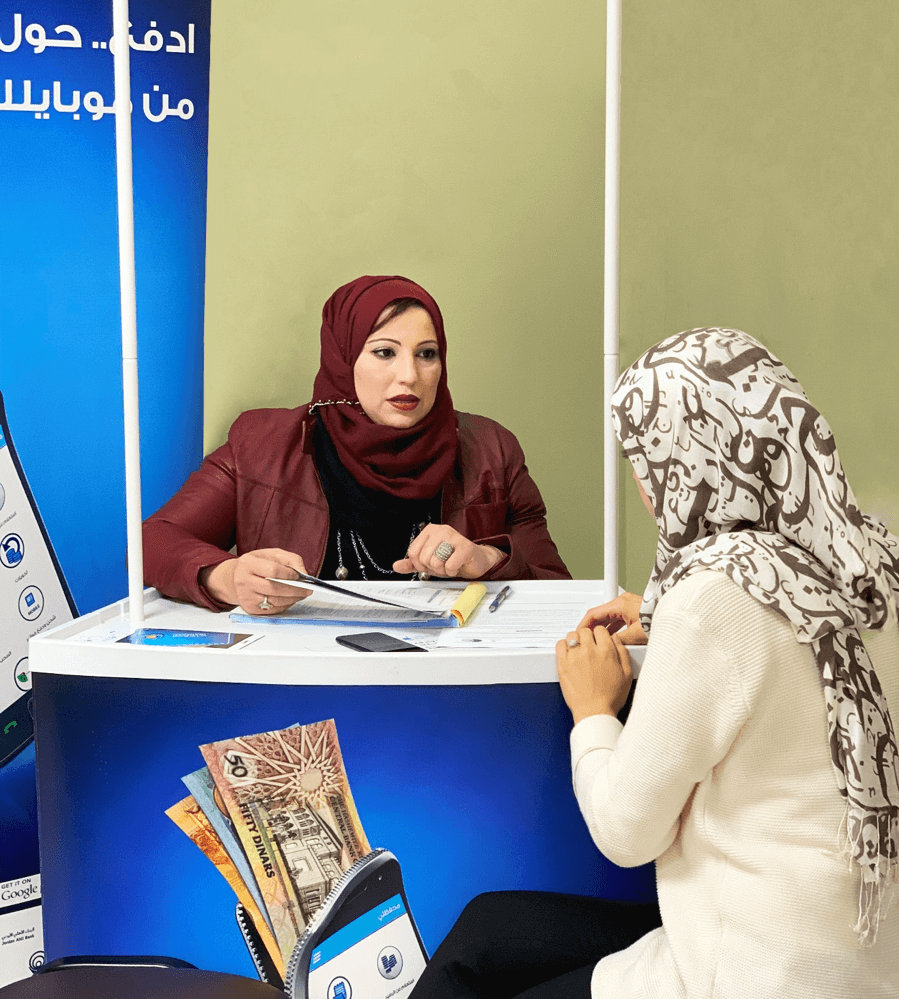
This post was originally published on JoPACC’s website.
It is estimated that approximately half of the world’s population is locked down, with the other half likely to have experienced drastic changes in their day-to-day lives as a result of the COVID-19 pandemic.
Here in Jordan, this crisis has brought us closer, both as people and to our public institutions. With a full, country-wide lockdown, emergency fiscal, monetary and social welfare policies and measures, and labor protection measures, the response of the Jordanian government has been extraordinary.
And in addition to first responders, medics and all those working in the field for our safety, this crisis has also revealed a new type of hero: mobile money.
Mobile money arrived to Jordan in 2014 when the National Payments Council launched the Jordan Mobile Payment (JoMoPay) Switch, which was operated by the Central Bank of Jordan. With this, JoMoPay laid the foundations for mobile payment service providers (mPSPs) to enter the market and offer mobile money products.
JoMoPay, however, was unique compared to other mobile payment ecosystems in a number of ways. First, all e-money issuance was fully backed and guaranteed within escrow accounts, in addition to settlements of JoMoPay transactions taking place in central bank electronic money. Second, it was an open ecosystem ensuring interoperability by design. Third, it uniquely identified customers and wallets through a combination of Jordan’s National Identity Scheme for Jordanians, and other unique identifiers for non-Jordanians. It is also the only real-time micropayment system in Jordan operating during this crisis.
These distinguishing characteristics, which were originally conceptualized to ensure safe and accessible digital financial services for the unbanked in Jordan, led to JoMoPay (now operated by JoPACC) becoming the primary chain connecting the government, private sector and NGOs, and an integral component of financial survival during the lockdown.
In order to amplify this potential, and ensure the smooth implementation of economic relief measures, the Central Bank of Jordan, JoPACC, and all financial institutions in the market, introduced policies, measures and actions aimed at expanding access to digital financial instruments, most notably mobile wallets.
The Central Bank of Jordan, JoPACC and FSPs introduced policies, measures and actions for expanding access to digital products and services during COVID-19.
The first of these was the sanctioning of remote digital onboarding through simplified electronic customer due diligence (eCDD) for mobile wallets. This was done without compromising the safety of the financial system, owing to Jordan’s comprehensive national identification scheme and the UNHCR ID for refugees. Furthermore, to ensure that no mobile phone numbers, which serve as the unique wallet identifiers, were reserved in vain, JoPACC, along with all JoMoPay participants, undertook a full data cleansing effort leading to the closure of all inactive mobile wallets (with zero balances and no transactions for a minimum of one year). This was of great importance as it freed up a substantial proportion of mobile numbers associated to inactive wallets for consumers to onboard with. It also provided high-precision insights on the beneficiaries of mobile wallets in Jordan, 91.3 and 2.67 percent of whom were Jordanians and refugees, respectively.
Innovation Prevails During Times of Crisis
The Unified Agent Interface (UAI), developed in-house at JoPACC, originally served one purpose: an interoperable platform for super agents of mPSPs to serve any mobile wallet user. However, during the COVID-19 crisis, several developments and enhancements took place on the platform, making it the center of an innovation storm geared towards automating and enabling access to mobile wallet information and services remotely. This included an online wallet inquiry service built on OCR technology for extracting information from national ID cards, a comprehensive directory of mobile money agents around the kingdom, as well as information on fees charged by each mPSP to enable consumers to make the best choice of provider. This brought our attention to the potential the UAI holds, and we are looking forward to developing it further and to transforming it into a holistic platform for mobile wallet users.
The aforementioned measures paved the way for the opening of approximately 85,000 new mobile wallets during the crisis, a 20 percent growth in the number of wallets in Jordan. This number is expected to grow exponentially as the National Aid Fund continues to migrate its recipients of cash assistance to digital financial services, and the government begins disbursing cash assistance for the most economically impacted individuals solely through mobile wallets facilitated by JoMoPay’s bulk payment capabilities.
JoPACC’s agent platform enhancements during the crisis have lead to a 20% growth in the number of mobile wallets.
A key to the success of all the above measures and initiatives is ensuring accessibility to cash in cash out (CICO) facilities for beneficiaries, as well as adequate usage opportunities. In Jordan, the wallet to agent ratio is 414:1. To lower this number and ensure higher accessibility to CICO facilities, two banks in Jordan enabled full cardless cash out capabilities for mobile wallet holders through their ATM network, making the ratio of wallets to CICO facilities 339:1. With another bank expected to join, the ratio will go down to 294:1. This ratio is comparable to advanced mobile money markets, such as Kenya, Rwanda, and Uganda.
In addition, eFAWATEERcom, Jordan’s only electronic bill presentment and payment system, is directly integrated with the JoMoPay switch, enabling seamless bill payments for wallet holders, and ensuring no interruption of cash flow for billers. Coupled with an unprecedented increase in the number of billers on the eFAWATEERcom platform, this injects substantial usage opportunities for mobile wallet users. Furthermore, the Central Bank of Jordan, in partnership with JoPACC, launched the COVID-19 Challenge Fund to promote mPSPs to enable contactless payment technologies and acquire merchants to increase usage opportunities. JoPACC is also in the process of enabling interoperability of e-commerce platforms with mobile wallets and QR acceptance.
The above summarizes some of the efforts undertaken to ensure the protection of Jordan’s most vulnerable through mobile money during this crisis. JoPACC will conduct a full impact assessment on DFS in times of crisis to assess the resilience of Jordan’s payments infrastructure and extract lessons to safeguard its economy against future crises.










